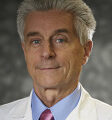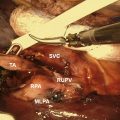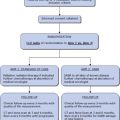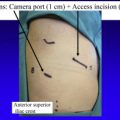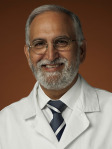
The Epidemiology of Lung Cancer is presented this time by Dr Yousheng Mao. He is a distinguished professor and chairman of thoracic malignancies at the renowned Chinese Academy of Science Cancer Center. His review is timely in exposing the current shift in epidemiology of lung cancer from smokers to include nonsmokers, from men to women, and from the developed countries to developing countries. One of the greatest changes since the last issue in 2011 is the recognition of the value of computed tomography (CT) screening for lung cancer. Dr Nasser Altorki and colleagues have been at the forefront of the randomized trials to determine the benefit of CT screening. Their thoughtful review of the current data explains the new decisions regarding coverage for this test among certain groups of patients identified as “high risk.” Pathology of lung cancer has undergone huge changes in definitions (by the WHO) as well as in modifications on reporting based on revisions to the new staging system (endorsed by the International Association for the Study of Lung Cancer). Dr Min Zheng, who has worked with me hand in hand in launching the thoracic oncology program at Meridian Health, has done a remarkable job of presenting the field in a clear and concise way.
The staging of lung cancer is crucial, and after ruling out distant metastases, mediastinal staging for lung cancer is of utmost importance in determining whether surgery alone or a combined modality approach should be used. This is presented by my former partner, Dr Ziv Gamliel, currently chief of Thoracic Surgery at MedStar Health. Bronchoscopy as both a diagnostic and a therapeutic tool has become indispensable for non–small cell lung cancer (NSCLC). Dr Thomas Bauer, the new Medical Director for Thoracic Oncology at Meridian, has been a champion of these newer techniques, including endobronchial ultrasound and electromagnetic navigation bronchoscopy, and describes their place in the armamentarium for the thoracic surgeons.
The standard surgical approach to resectable lesions remains lobectomy. Although the most common approach across the nation remains open thoracotomy, video-assisted thoroscopic surgery lobectomy for NSCLC has clearly been shown to be equal as an oncologic procedure and beneficial from the perspective of patient discomfort and loss of work. I’m delighted that Dr Thomas D’Amico, who has trained many of the surgeons in the world, and who adopted this procedure early on, has agreed to present his clear, thoughtful, step-by-step technical approach to this procedure, whose time has clearly come. Robotic lung resection for NSCLC is now the next “big” thing in thoracic surgery. Dr Robert Cerfolio has done more to champion this technique with a technical and team approach and shares his system herein.
Pneumonectomy for NSCLC is being used less and less as we all take a lung-sparing approach to patients with a view to cure and long-term survival; however, technical and anatomic situations occur regularly and require the thoracic surgeon to be proficient. Dr David Sugarbaker not only has described this in patients with mesothelioma, but also has had some of the best data in NSCLC as well, including operating on patients after neoadjuvant therapy with chemo and/or radiation.
Whereas in the past, surgery was seen as curative for only a small number of patients with lung cancer, the use of neoadjuvant therapy for lung cancer has allowed the surgeon to include the multimodality team prospectively and utilize chemotherapy and/or radiation therapy prior to resection to achieve mediastinal clearance and cure. Dr Raphael Bueno has written extensively on this field and shares the excellent results from the Brigham Group.
Alternative treatments for patients with local regional lung cancer have evolved. Data now exist on the use of stereotactic body radiation therapy as well as other ablative therapies for NSCLC. These are presented by Dr Adnan Danish, from radiation oncology, and Dr Ghulam Abbas, from thoracic surgery, who show how approaching these lesions as a team allows us to determine the right intervention for the right patient.
Dr Douglas Miller, who has led our effort to bring academics and new trials in radiation oncology to Meridian Health, has joined me in describing the current status of treatment of patients with oligometastatic disease for NSCLC.
Adjuvant therapy for local regional NSCLC has become established as part of the routine approach to cure this disease. Making lung cancer care a true team sport, by use of either adjuvant or neoadjuvant therapy in stage I, II, and III NSCLC, has become a new norm. The choice of agents supported by guidelines has now shifted to molecular/targeted therapy for lung cancer based on histology and specific expression of molecular targets. Dr Naylor and colleagues describe how this has given rise to a new generation of treatments that are linked to specific tests to be done prior to beginning therapy.
I hope you enjoy this issue and find the information exciting and up-to-date.
Stay updated, free articles. Join our Telegram channel

Full access? Get Clinical Tree


